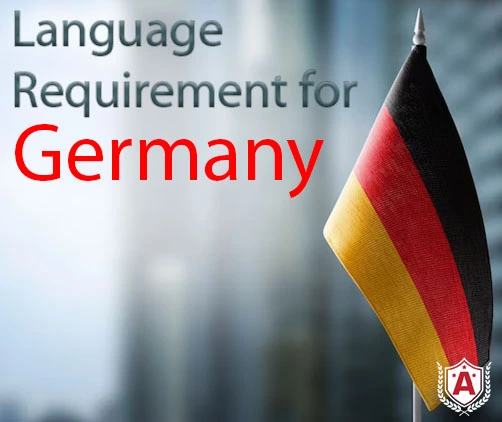Updated on Oct, 14 2025 05:40 IST
Team Anigdha
Update on - 06 April, 2023
 The saying goes that if something works, don't fix it. And with the German education system, this is definitely true. Though strict at times, the German education system is celebrated for producing powerful intellectuals and granting an opportunity to those who take advantage of it. Thanks to the works of Lietz and Fröbel, German kids have been doing well in school for over a century - whether it's studying Shakespeare or mastering Mandarin. Despite the economic crisis that's gripped the globe, it has managed to build one of the world's finest and most valued education systems. So what makes the German education system so successful? Several factors contribute to its success, including strong government support and a well-developed vocational training system. In this article, we will explore the German education system in detail and discuss why it is so successful. This blog post will provide an overview of the various levels of schooling available in Germany, as well as their respective curricula and requirements. Additionally, it will discuss some key differences between the different stages of German education. Finally, this blog will also explore how vocational studies have been integrated into modern classrooms throughout Germany over recent years. With its high standards and innovative approach to teaching methods, there's no doubt that Germany provides an excellent environment for learning!
The saying goes that if something works, don't fix it. And with the German education system, this is definitely true. Though strict at times, the German education system is celebrated for producing powerful intellectuals and granting an opportunity to those who take advantage of it. Thanks to the works of Lietz and Fröbel, German kids have been doing well in school for over a century - whether it's studying Shakespeare or mastering Mandarin. Despite the economic crisis that's gripped the globe, it has managed to build one of the world's finest and most valued education systems. So what makes the German education system so successful? Several factors contribute to its success, including strong government support and a well-developed vocational training system. In this article, we will explore the German education system in detail and discuss why it is so successful. This blog post will provide an overview of the various levels of schooling available in Germany, as well as their respective curricula and requirements. Additionally, it will discuss some key differences between the different stages of German education. Finally, this blog will also explore how vocational studies have been integrated into modern classrooms throughout Germany over recent years. With its high standards and innovative approach to teaching methods, there's no doubt that Germany provides an excellent environment for learning!
The German education system is designed to guide students, gently leading them from kindergarten to university. It's like a ballet, but with fewer tutus and more lederhosen. It is based on the principle of equality and has been designed to ensure that all children have access to quality education regardless of their social background. All children are required to attend school from the age of six, and they can choose between four different types of schools. First of all, all children in Germany must attend school for at least nine years. This is compulsory education, and it is free of charge.
After compulsory education, students can choose to either continue their schooling in an academic track leading to university, or they can enter a vocational training program. Vocational training is an important part of the German education system. In fact, around 60% of students choose to enter a vocational training program after completing their compulsory education.
The first type is the Grundschule or elementary school. This lasts for four years and is compulsory for all children from the ages of 6-10. The second type is the Hauptschule, which lasts for five years and focuses on vocational training. The third type is the Realschule, which lasts for six years and provides a more balanced curriculum that includes both academic and practical subjects. Lastly, there is the Gymnasium, which lasts for eight years and prepares students for university-level studies.
Germany's education system is simple. Once you learn basic math and language skills, you've mastered them forever. Once you know how to conjugate a German verb, you always will. German students are also expected to learn several foreign languages including English, French, or Spanish.
In addition to traditional classes, many schools offer additional courses that focus on special interests such as entrepreneurship or design thinking. Furthermore, most schools also provide after-school programs such as sports clubs or drama clubs to help students develop skills outside of the classroom.
Primary education in Germany is mostly provided by the public sector, with state-run schools covering all levels of education from kindergarten to grade 12. The elementary schools in Germany are a lot like their counterparts where kids are taught the foundations of reading, writing, and arithmetic. Children attend school from the age of six unless they are already doing well enough in kindergarten to skip a few years.
In general, German primary schools focus on developing strong academic skills such as mathematics and language skills as well as providing a wide range of subjects including art, music, physical education, and social sciences. They also foster personal development through activities such as field trips and educational games. The classroom environment is usually quite formal, with teachers setting strict rules and expectations for the students. However, they are also very supportive and often encourage students to take part in extracurricular activities outside of the school day.
Some people thrive in an insular, highly structured environment. Others need the freedom to make their own choices. The German secondary system offers a happy medium for both types of students. With its focused academic programs, modern facilities, and excellent teachers, Germany's secondary education system is top-notch. The German secondary school system consists of two main types: Gymnasiums and Realschulen. Students in Germany may choose between attending either trade school or university. There are many similarities between these two, but they also differ greatly.
Gymnasiums offer an academic curriculum for those who wish to pursue higher levels of education such as university studies. It is a rigorous program that focuses on in-depth learning and critical thinking skills. The classes are usually smaller than those at other schools and there is more emphasis placed on individualized instruction. Realschulen offers courses in practical skills such as economics, engineering, and technology. This type of school focuses less on academics and more on applied knowledge that can be used in the real world. It is suitable for those who may not have the desire or ability to pursue higher levels of education but still want to gain marketable skills that they can use in their future careers.
Before you're old enough to head off to university, or even learn how to drive a car, you'll have to make it through tertiary school. The Germans have a deep appreciation for education. Their ethos that one should not stop learning is reflected in their sound, user-friendly higher education system. There are three main types of tertiary education institutions in Germany: universities, universities of applied sciences, and colleges of art and music. Each type of institution has its own strengths and focuses on different areas of study. The tertiary education system in Germany is structured so that students can progress through different levels of education, from primary school to university. Each level has its own set of requirements and curriculum, and students must pass exams in order to progress to the next level. The system is designed so that students can specialize in a particular subject or area of interest as they progress through their studies.
Famous for its beer, pretzels, and language classes, Germany also has a great education system. By specializing in a particular field of study, prospective students can pursue their professional ambitions and gain the necessary qualifications to work in their chosen fields One of the most popular bachelor's degrees offered in Germany is business administration, which is often referred to as ‘Betriebswirtschaftslehre’. This course focuses on preparing students with the knowledge and skills needed to become successful entrepreneurs and managers. Students learn to manage resources, develop strategies, analyze financial data and understand the complexities of international business operations.
Another popular choice is engineering, which is known as ‘Ingenieurwissenschaften’ in German. This course provides students with the ability to solve complex technical problems through the application of mathematics and science. Depending on the chosen specialization, students will learn about topics such as civil engineering, electrical engineering, or mechanical engineering, among others.
In addition, Germany also offers a wide selection of humanities subjects such as political science, sociology, and art history. These courses are perfect for those who wish to become active members of society by understanding social dynamics and cultural histories. German universities have highly qualified faculty members who have strong research backgrounds and teach these courses with great efficacy.
Although it's certainly no Hogwarts, the German education system is still one of the best. Germany offers a truly world-class education system, with standards that are unrivaled by other countries. Students in Germany have a choice of practically endless levels of self-education. They're not passive participants in their education. With the wealth of universities and other institutions offering a range of courses, students can find programs to suit their interests, abilities, and budget. Furthermore, with its vibrant culture, varied landscapes, and rich history, Germany is an excellent place to live and learn. So, if you’re considering higher education abroad, make sure you look into Germany as a potential option—you won’t be disappointed!
Anighda Overseas Education Consultant is your one-stop destination for discovering top universities, courses, and everything you need to know about if you wish to Study in Germany. With decades of experience in the education industry, we are experts in helping students find the right program and top universities in Germany that meet their needs and aspirations. We offer a personalized service that includes providing information and advice on a wide range of topics, including how you can Study in Germany for free. In addition, we can help with the application process, whether you want to study masters in Germany or Study Bachelors in Germany.
Our goal is to make the process of studying overseas easier and smoother for you so that you can focus on enjoying your time at university. So whether your dream is to study MBA in Germany or study medicine in Germany, contact us today to learn more about how we can help you achieve your ambitions of studying overseas!

This blog post will provide an overview of the various levels of schooling avail...
October, 14 2025
Are you looking to expand your education abroad and experience all that Germany ...
October, 14 2025
If you are looking for a new job in Germany, or if you are an expat considering ...
October, 14 2025
This Blog post will provide important insights into student’s life. This blog ...
October, 14 2025
Germany is one of the most attractive places for international students due to i...
October, 14 2025
The German language is one of the official languages of Germany so proficiency i...
October, 14 2025
Are you planning to study in Germany? If so, it is important that you understand...
October, 13 2025
In recent years, more and more students have chosen to study in Germany. This be...
October, 13 2025